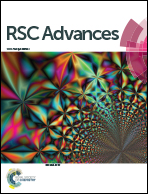Stereocomplex crystallites induce simultaneous enhancement in impact toughness and heat resistance of injection-molded polylactide/polyurethane blends
Abstract
Despite its attractiveness as an “green” substitute for conventional petroleum-based polymers, the current application of plant-derived biodegradable poly(L-lactide) (PLLA) in many fields has been greatly limited by its inherent brittleness and poor heat resistance. Herein, taking thermoplastic polyurethane (TPU) toughened PLLA as an example, we report a facile and promising strategy for the fabrication of super-toughened and heat-resistant PLLA/elastomer blends by incorporating small amounts (e.g., 2.5 wt%) of poly(D-lactide) (PDLA) into the blends through melt-blending and subsequent injection molding. The incorporated PDLA chains can readily collaborate with neighboring PLLA matrix chains during the melt-blending process to co-crystallize into stereocomplex (sc) crystallites in the PLLA matrix of the blend melts. Thus, these sc crystallites can behave as a highly efficient nucleating agent to significantly accelerate matrix crystallization, allowing for the preparation of PLLA blends with a highly crystallized PLLA matrix using practical injection molding. The highly crystallized matrix can provide the PLLA/TPU blends with dramatically improved impact toughness and heat resistance as compared with the amorphous one. Meanwhile, the role of these sc crystallites as a rheology modifier to induce the unexpected morphological change from the dispersed TPU phase from the sea-island structure to the unique network-like structure with a much higher toughening efficiency is also observed.


 Please wait while we load your content...
Please wait while we load your content...